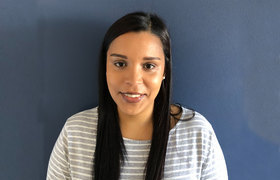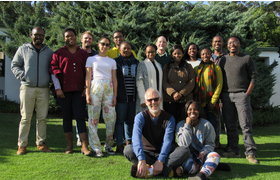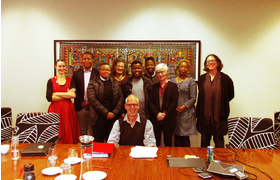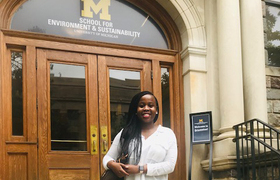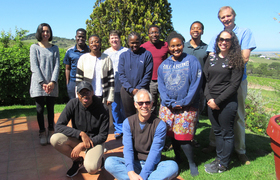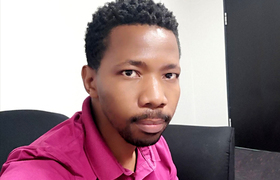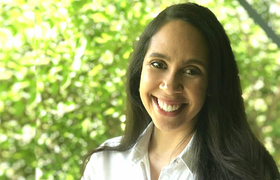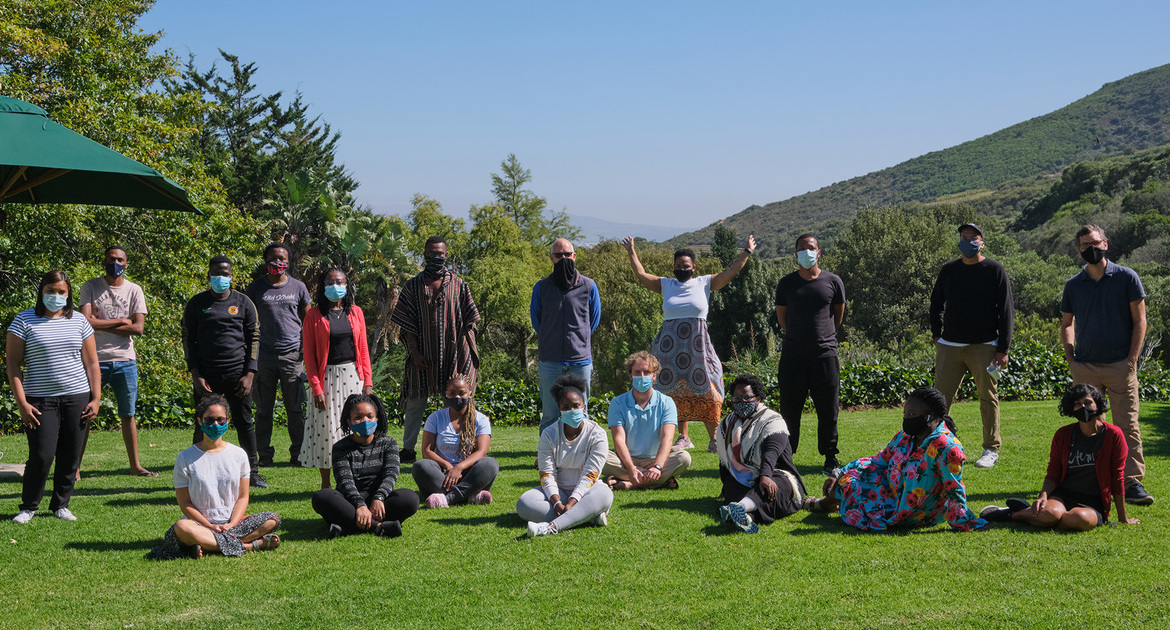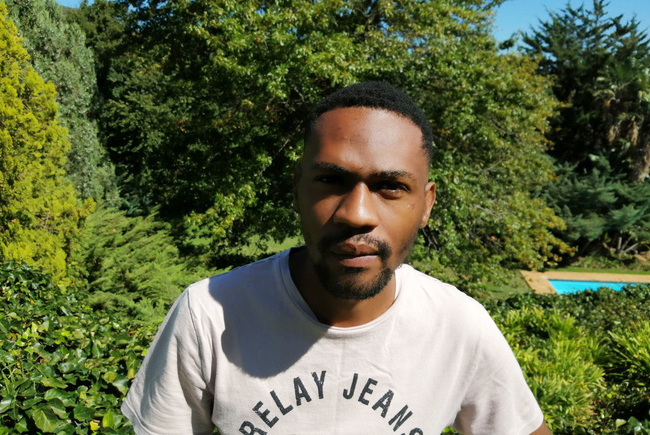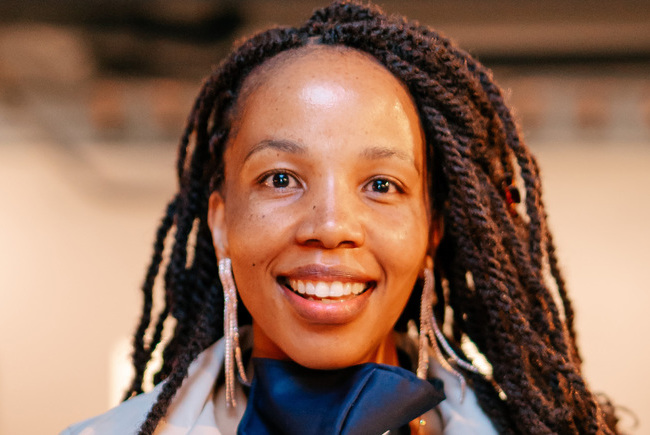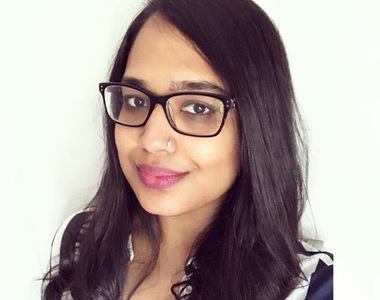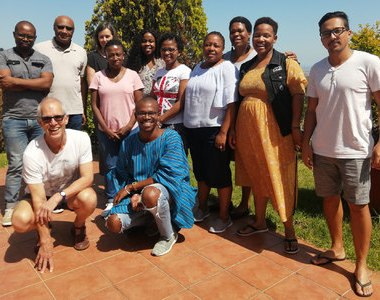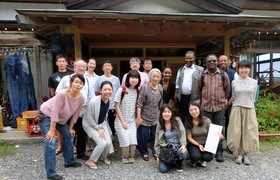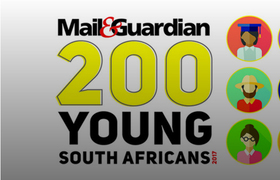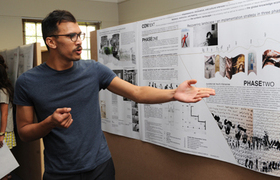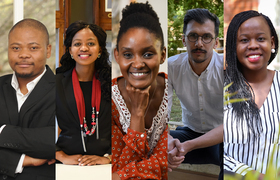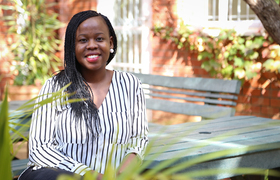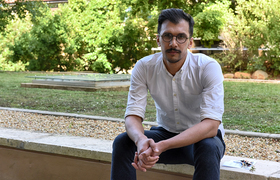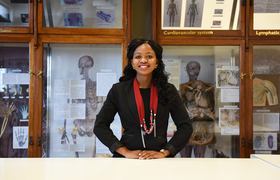Professionalisation the tonic for municipalities' dysfunction
17 May 2016 | Story Helen Swingler. Photo Je'nine May.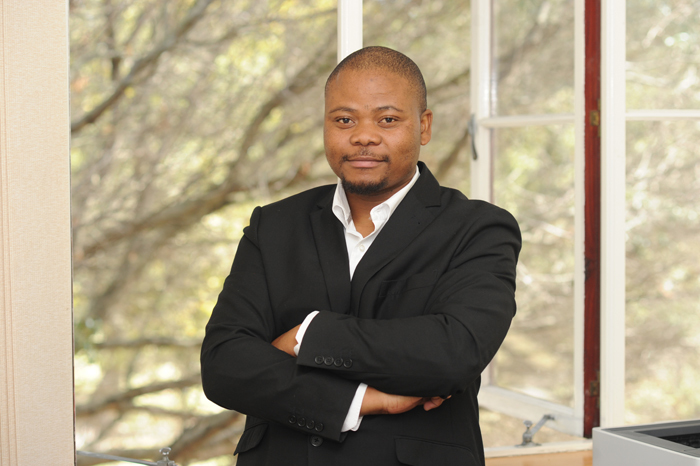
Violent service protests across the country reflect the disjuncture between the needs of civil society's poorest and local government's roll-out of resources and services. It's a topic close to Phindile Ntliziywana's heart. One of UCT's five New Generation of Academics Programme (nGAP) participants, Ntliziywana's PhD examines how the public service, specifically local government, can be improved.
Lady Frere in the Eastern Cape, where Ntliziywana grew up, epitomises the plight of many traditional South African rural settlements. With low levels of economic development and high levels of unemployment, people rely on social grants. Services and resources are meagre. Taps are few and far between and in winter the wells ice up.
Caught in the cycle of neglect, Ntliziywana says the community is “defeated, disempowered and disinterested”. As one resident said to him: “I live in a dump. Water and winter come into my house.”
“Even local councillors leave them desperate,” he says. “People there say democracy is a farce; that it protects white interests.”
Poor levels of professionalism in the public service also play a large part, says Ntliziywana. His LLM thesis (University of the Western Cape, 2009) focused on how the professionalisation of local government's administrative arm could address capacity deficits. His PhD thesis proposes that professionalisation could go a long way to stemming the tide of incapacity and dysfunction in many municipalities. Professionalisation has three prongs, he says: competence (qualifications and experience); professional independence (insulating professional administrators from political meddling); and ethics (enforced by professional associations).
Pipeline of PhDs
Ntliziywana spent a month at the Swiss University of Fribourg as a postgraduate student for a short course on federalism (he got his diploma cum laude). After returning to South Africa, he joined UWC's Community Law Centre (now the Dullah Omar Institute) as a researcher. He spotted the nGAP advertisement in 2015 and, well, took the gap.
The nGAP programme is a partnership between government (specifically the Department of Higher Education and Training) and universities. Both contribute to the costs and in most cases UCT contributes over R100 000 to the annual salary of each candidate.
The first three years are devoted to development. Having been appointed to fulltime posts, candidates are sheltered from onerous teaching commitments to allow them to complete their PhDs. Over the next three years they're inducted as academics. Each candidate is assigned a mentor. Ntliziywana's mentor is Professor Hugh Corder in UCT's Department of Public Law.
“The programme ensures black academics find a presence in institutions of higher learning, which have been an 'only whites' bastion from time immemorial,” says Ntliziywana. “Because of the institutional culture and other barriers, not all of us would make it here. This gives us a headstart. When it's done, we'll be established academics.”
He is well on his way. His PhD is already well developed, and has now broadened into a multidisciplinary study incorporating public administration and political science. He hopes to finish by the end of the year.
Cost of scholarship
While buoyed by the support the programme offers, pursuing a PhD initially left him feeling torn. Ntliziywana feels the poverty of his community – and his country − acutely. After matriculating from Freemantle Boys' High School at Lady Frere in 2000, he entered the Roman Catholic seminary to become a priest. Even with his parents' blessing, he felt it was an indulgent choice. They were losing a vital breadwinner.
“Not being able to pay back weighed heavily on me.”
So he changed tack to study law, which he thought would be productive and provide family support.
“Law is practical; it deals with the day-to-day issues,” he said. “Law is doing.”
Part of that doing is publishing. His contribution thus far includes several scholarly articles and three book chapters as well as a case note in the South African Law Journal and an article in the Constitutional Court Review. (The latter is an accredited journal that reviews the decisions of the Constitutional Court thematically.) Ntliziywana also plans to turn his PhD into a book and a number of journal articles. And by publishing in lay publications, he's educating the public about the role and workings of local government.
“The aim also is to publish on the issues that affect the nation on a day-to-day basis and not only on abstract academic issues.”
But working on a PhD can be a lonely exercise, he says.
“A community of scholars would help; a forum where we could assess each other's progress, keep each other on our toes, encourage one another, share our frustrations. It helps to speak to people who know the pitfalls you face.”
 This work is licensed under a Creative Commons Attribution-NoDerivatives 4.0 International License.
This work is licensed under a Creative Commons Attribution-NoDerivatives 4.0 International License.
Please view the republishing articles page for more information.
New Generation of Academics Programme (nGAP)
UCT has responded energetically to the New Generation of Academics Programme (nGAP), an opportunity provided by the Department of Higher Education (DHET) to build a new generation of black South African academics. The DHET’s 2015 vision document, “Staffing South Africa’s Universities Framework: A comprehensive, transformative approach to developing future generations of academics and building staff capacity”, proposes a suite of initiatives to address the challenge, with nGAP being the major instrument to increase the numbers of black South African academics.
The programme “involves the recruitment of highly capable scholars as new academics, against carefully designed and balanced equity considerations and in light of the disciplinary areas of greatest need”. The nGAP scholars are appointed into permanent positions where from the outset their conditions are customised to ensure their successful induction into the ranks of established academics.
The DHET provides funding over a six-year period to support the appointment of an nGAP lecturer, and their time is protected to provide the best possible opportunity for the completion of a doctorate degree in the shortest possible time. Once the degree is completed, the nGAP lecturer’s teaching commitments are steadily increased until they shoulder a full teaching load.
Since the first advertisement for nGAP posts in 2015, UCT has been awarded 17 nGAP positions: 5 (Phase 1), 4 (Phase 2), 3 (Phase 3) and 5 (Phase 4). These are distributed across all faculties.
UCT’s nGAP scholars operate as a single cohort, managed and coordinated by Dr Robert Morrell. Lecturers meet for quarterly meetings, writing retreats and various capacity-building activities all designed to support the completion of postgraduate qualifications (particularly doctorates) and to develop records of achievement that will testify to their emergence as self-standing, excellent academics. Each lecturer is mentored by a senior scholar, who provides support and guidance on the challenges that routinely face academics.
The nGAP manager sets great store in building the cohesion of the cohort and encouraging the establishment of new UCT networks while producing a collaborative, mutually supportive and embracing work culture.
According to Dr Morrell, “This group of academics will lead UCT in 15 to 20 years’ time ... Their vision of excellence, of being African and South African, of serving a wider community and producing knowledge for the planet, the continent and the country, will power UCT in years to come.”
Newsletters
In the news
